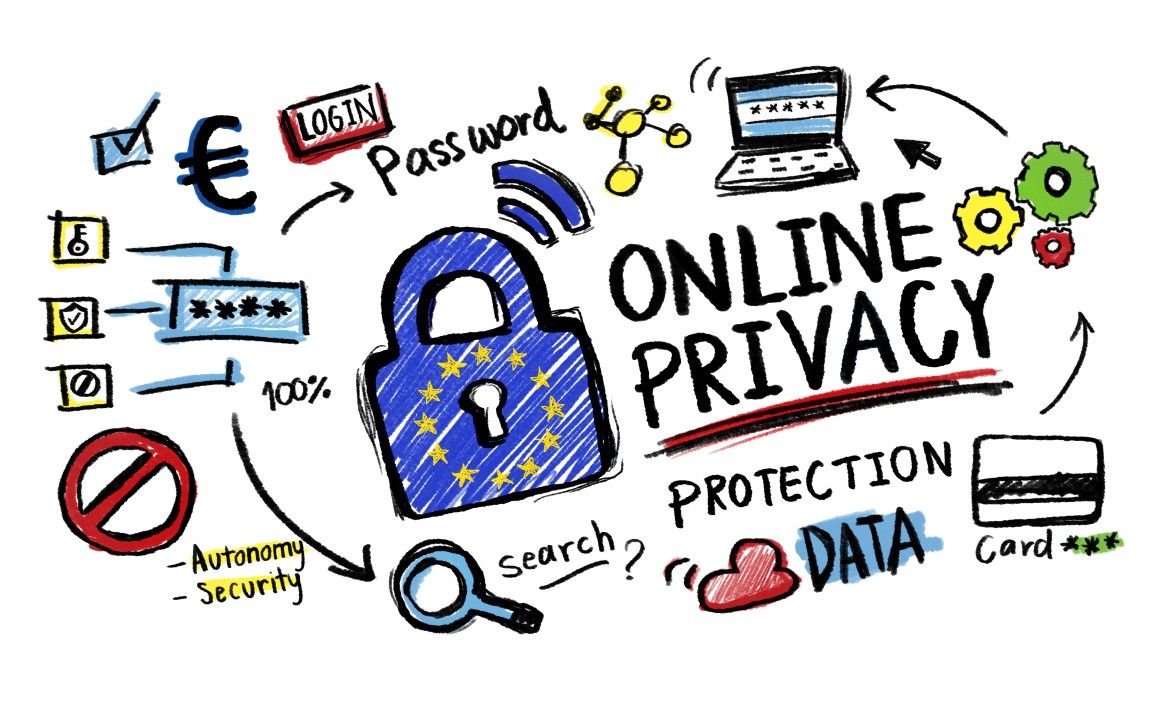

In today’s interconnected world, protecting our privacy has become more important than ever. Let’s explore this topic in more detail with Papa’s Freezeria below. As we increasingly rely on digital technologies for work, communication, and entertainment, we leave behind a trail of personal data that can be vulnerable to exploitation. This article will explore effective strategies and best practices for safeguarding your privacy in the digital age, empowering you to take control of your personal information and maintain your security online.
In an era where our lives are increasingly intertwined with technology, the concept of privacy has taken on new dimensions. The digital footprint we leave behind with every online interaction, from browsing websites to making purchases and sharing on social media, can potentially be tracked, analyzed, and exploited by various entities. This wealth of personal data has become a valuable commodity, sought after by advertisers, hackers, and even governments.
The consequences of compromised privacy can range from annoying targeted advertisements to more serious issues like identity theft, financial fraud, or even personal safety risks. As technology continues to advance, so do the methods used by those seeking to access and exploit our personal information. Therefore, understanding the importance of digital privacy and taking proactive steps to protect it is crucial for everyone navigating the digital landscape.
Moreover, privacy is not just about hiding information; it’s about having control over who has access to your personal data and how it’s used. In a world where data breaches and cyber attacks are becoming increasingly common, maintaining this control is essential for preserving our autonomy, freedom of expression, and personal security. By prioritizing digital privacy, we can enjoy the benefits of technology while minimizing the risks associated with our online presence.
Read more: What Is the Metaverse and Why Should You Care?
Protecting your privacy in the digital world requires a multi-faceted approach. Here are some essential strategies to help you safeguard your personal information and maintain control over your digital footprint:
One of the most fundamental steps in protecting your online privacy is creating strong, unique passwords for each of your accounts. Avoid using easily guessable information like birthdays or common words. Instead, opt for long, complex passwords that combine uppercase and lowercase letters, numbers, and special characters. Consider using a password manager to generate and securely store these complex passwords, eliminating the need to remember them all.
In addition to strong passwords, enable multi-factor authentication (MFA) wherever possible. MFA adds an extra layer of security by requiring a second form of verification, such as a fingerprint scan, a code sent to your phone, or a physical security key. This significantly reduces the risk of unauthorized access to your accounts, even if your password is compromised.
Social media platforms are treasure troves of personal information. While they offer valuable ways to connect with others, they can also expose a significant amount of your private data. Regularly review and adjust your privacy settings on all social media accounts to ensure you’re only sharing information with your intended audience. Be cautious about the personal details you post, such as your location, travel plans, or financial information.
Consider the long-term implications of your posts and photos. Once something is shared online, it can be difficult to completely remove it. Think twice before posting sensitive or potentially embarrassing content that could affect your personal or professional life in the future. Additionally, be wary of third-party apps and quizzes that request access to your social media accounts, as these can often be used to harvest your personal data.
Encryption is a powerful tool for protecting your digital communications and stored data. When possible, use encrypted messaging apps for sensitive conversations. These apps use end-to-end encryption, meaning that only you and the intended recipient can read the messages. Popular options include Signal, WhatsApp, and Telegram, though it’s important to note that the level of security can vary between apps.
For email, consider using a service that offers end-to-end encryption or enable encryption features if available in your current email client. When storing sensitive files on your devices or in the cloud, use encryption tools to add an extra layer of protection. This is particularly important for financial documents, personal identification information, and other confidential data.
In the digital age, our online activities are constantly tracked and analyzed by various entities, from advertisers to data brokers. Understanding how this tracking works and taking steps to limit it is crucial for maintaining your privacy. Here are some strategies to help you navigate the complex world of online tracking and data collection:
Your choice of web browser and search engine can significantly impact your online privacy. Consider using privacy-focused browsers like Brave or Firefox, which offer built-in tracking protection and ad-blocking features. These browsers are designed to minimize the amount of data collected about your browsing habits and can help reduce your digital footprint.
Similarly, opt for search engines that prioritize user privacy, such as DuckDuckGo or Startpage. Unlike major search engines that track and store your search history to personalize results and serve targeted ads, these privacy-focused alternatives don’t collect or share your personal information. While you may sacrifice some level of personalization, the trade-off is enhanced privacy and reduced tracking.
Cookies are small files that websites store on your device to remember your preferences and track your browsing behavior. While some cookies are necessary for website functionality, others are used for tracking and advertising purposes. Regularly clear your browser cookies and cache to limit the amount of data websites can collect about you. Most modern browsers also offer options to block third-party cookies, which are often used for cross-site tracking.
Pay attention to website permissions as well. Many sites request access to your location, camera, microphone, or notification capabilities. Only grant these permissions when necessary and revoke them when they’re no longer needed. Regularly review and manage these permissions in your browser settings to ensure you’re not unknowingly sharing more information than intended.
A Virtual Private Network (VPN) is a valuable tool for enhancing your online privacy and security. A VPN encrypts your internet traffic and routes it through a server in a different location, masking your IP address and making it more difficult for websites, your internet service provider, and potential hackers to track your online activities. This is particularly important when using public Wi-Fi networks, which are often unsecured and vulnerable to eavesdropping.
When choosing a VPN service, opt for reputable providers with strong privacy policies and a no-logs commitment. While free VPNs may be tempting, they often come with limitations and potential privacy risks. Investing in a paid VPN service can provide better security, faster speeds, and more reliable privacy protection. Remember to keep your VPN software updated and enabled whenever you’re online, especially when accessing sensitive information or using public networks.
Read more: The Rise of Digital Nomads: Tech Tools for Remote Work
Your devices and home network are the gateways to your digital life. Ensuring their security is crucial for maintaining your overall privacy. Here are some essential steps to protect your devices and networks from potential threats:
Regularly updating your devices’ operating systems and software is one of the most effective ways to protect against security vulnerabilities. These updates often include patches for newly discovered security flaws that could be exploited by hackers. Enable automatic updates whenever possible, and make it a habit to check for and install updates regularly on all your devices, including smartphones, tablets, computers, and smart home devices.
Don’t forget about your apps and browser extensions as well. Outdated apps can pose security risks, so keep them updated or remove them if they’re no longer supported by the developer. Be cautious when installing new apps or extensions, and only download from official app stores or trusted sources to minimize the risk of malware.
Your home Wi-Fi network is a potential entry point for cybercriminals looking to access your personal information. Start by changing the default password on your router to a strong, unique password. Use WPA3 encryption if available, or at least WPA2, to protect your network from unauthorized access. Avoid using older, less secure encryption methods like WEP.